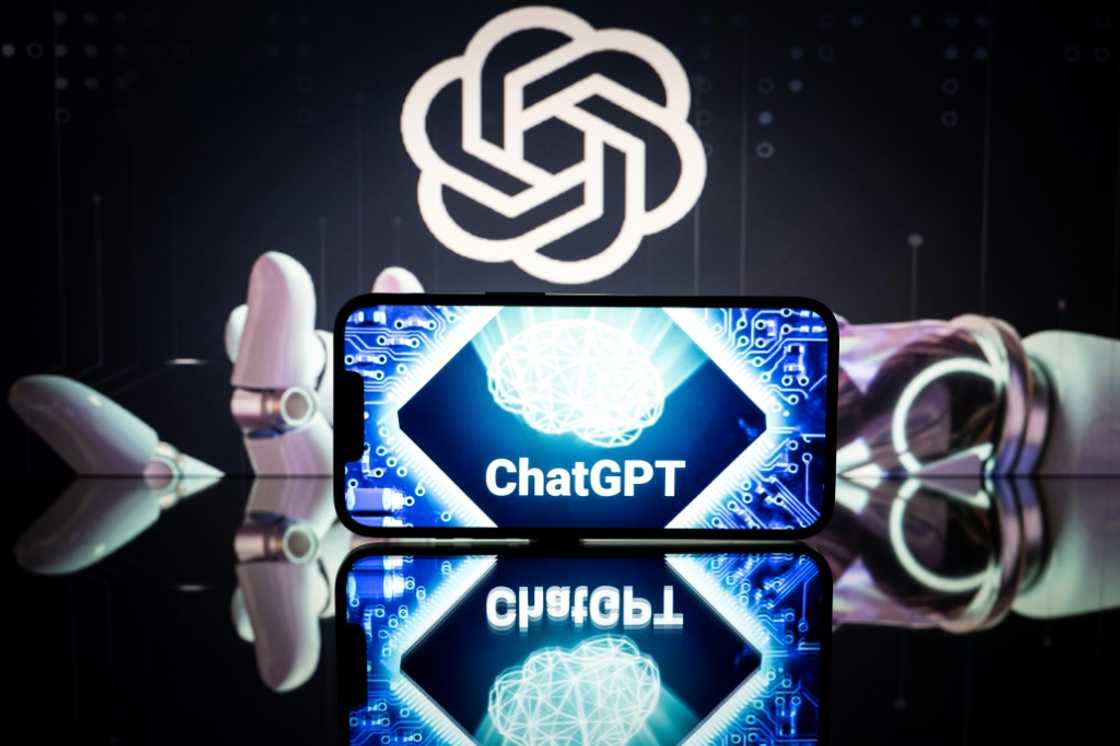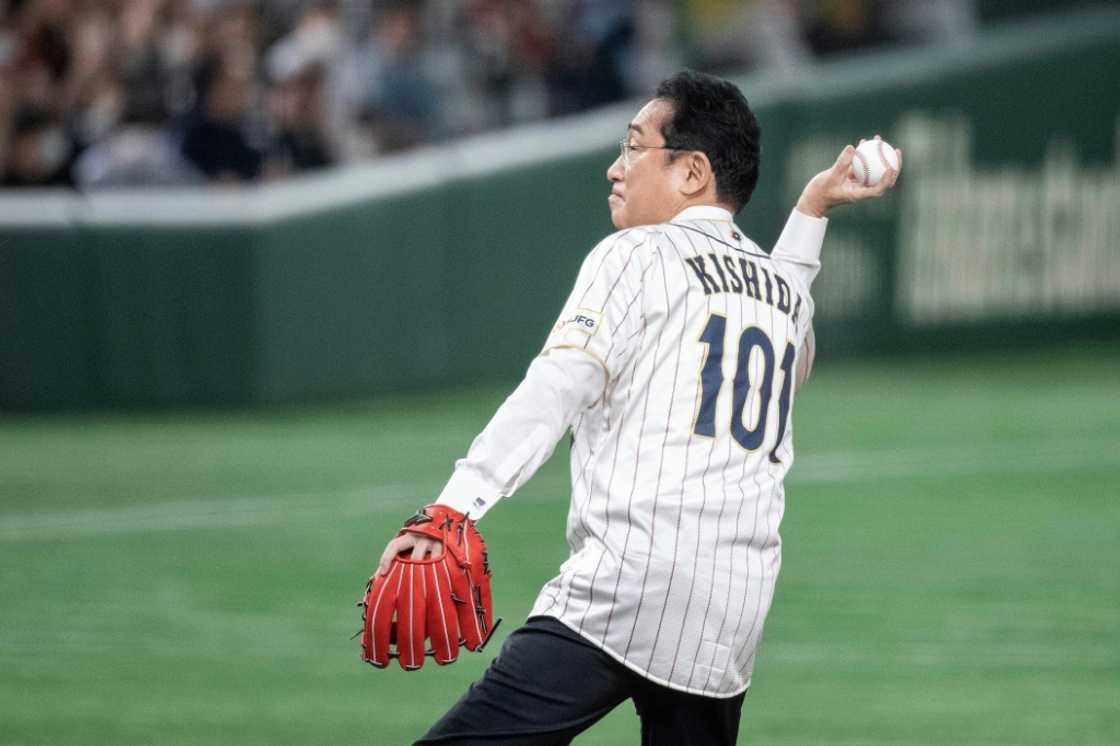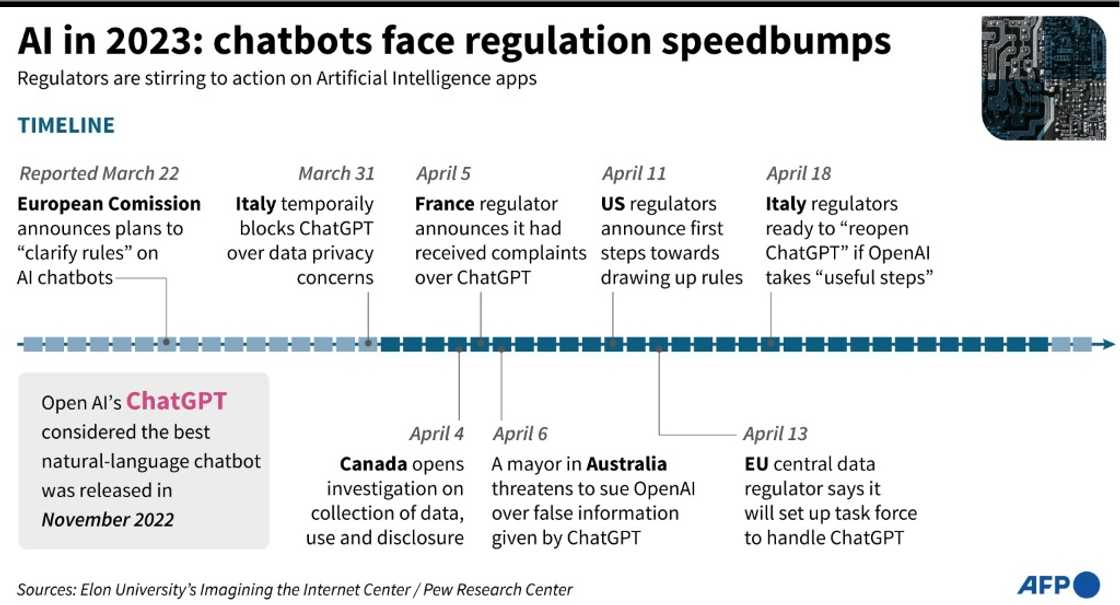Writer, adviser, poet, bot: How ChatGPT could transform politics

Source: AFP
PAY ATTENTION: Enjoy reading our stories? Join YEN.com.gh's Telegram channel for more!
The AI bot ChatGPT has passed exams, written poetry, and deployed in newsrooms, and now politicians are seeking it out -- but experts are warning against rapid uptake of a tool also famous for fabricating "facts".
The chatbot, released last November by US firm OpenAI, has quickly moved centre stage in politics -- particularly as a way of scoring points.
Japanese Prime Minister Fumio Kishida recently took a direct hit from the bot when he answered some innocuous questions about healthcare reform from an opposition MP.
Unbeknownst to the PM, his adversary had generated the questions with ChatGPT. He also generated answers that he claimed were "more sincere" than Kishida's.
The PM hit back that his own answers had been "more specific".
French trade union boss Sophie Binet was on-trend when she drily assessed a recent speech by President Emmanuel Macron as one that "could have been done by ChatGPT".
PAY ATTENTION: Follow us on Instagram - get the most important news directly in your favourite app!
But the bot has also been used to write speeches and even help draft laws.
"It's useful to think of ChatGPT and generative AI in general as a cliche generator," David Karpf of George Washington University in the US said during a recent online panel.
"Most of what we do in politics is also cliche generation."
'Limited added value'
Nowhere has the enthusiasm for grandstanding with ChatGPT been keener than in the United States.

Source: AFP
Last month, Congresswoman Nancy Mace gave a five-minute speech at a Senate committee enumerating potential uses and harms of AI -- before delivering the punchline that "every single word" had been generated by ChatGPT.
Local US politician Barry Finegold had already gone further though, pronouncing in January that his team had used ChatGPT to draft a bill for the Massachusetts Senate.
The bot reportedly introduced original ideas to the bill, which is intended to rein in the power of chatbots and AI.
Anne Meuwese from Leiden University in the Netherlands wrote in a column for Dutch law journal RegelMaat last week that she had carried out a similar experiment with ChatGPT and also found that the bot introduced original ideas.
But while ChatGPT was to some extent capable of generating legal texts, she wrote that lawmakers should not fall over each other to use the tool.
"Not only is much still unclear about important issues such as environmental impact, bias and the ethics at OpenAI... the added value also seems limited for now," she wrote.
Agitprop bots
The added value might be more obvious lower down the political food chain, though, where staffers on the campaign trail face a treadmill of repetitive tasks.

Source: AFP
Karpf suggested AI could be useful for generating emails asking for donations -- necessary messages that were not intended to be masterpieces.
This raises an issue of whether the bots can be trained to represent a political point of view.
ChatGPT has already provoked a storm of controversy over its apparent liberal bias -- the bot initially refused to write a poem praising Donald Trump but happily churned out couplets for his successor as US President Joe Biden.
Billionaire magnate Elon Musk has spied an opportunity. Despite warning that AI systems could destroy civilization, he recently promised to develop TruthGPT, an AI text tool stripped of the perceived liberal bias.
Perhaps he needn't have bothered. New Zealand researcher David Rozado already ran an experiment retooling ChatGPT as RightWingGPT -- a bot on board with family values, liberal economics and other right-wing rallying cries.
"Critically, the computational cost of trialling, training and testing the system was less than $300," he wrote on his Substack blog in February.
Not to be outdone, the left has its own "Marxist AI".

Source: AFP
The bot was created by the founder of Belgian satirical website Nordpresse, who goes by the pseudonym Vincent Flibustier.
He told AFP his bot just sends queries to ChatGPT with the command to answer as if it were an "angry trade unionist".
The malleability of chatbots is central to their appeal but it goes hand-in-hand with the tendency to generate untruths, making AI text generators potentially hazardous allies for the political class.
"You don't want to become famous as the political consultant or the political campaign that blew it because you decided that you could have a generative AI do [something] for you," said Karpf.
New feature: Сheck out news that is picked for YOU ➡️ click on “Recommended for you” and enjoy!
Source: AFP




